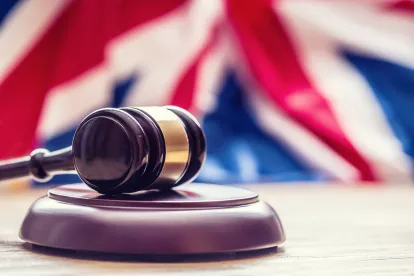In a judgment that many commentators are calling the most significant in employment law in over 50 years, on July 25, 2017, the United Kingdom’s Supreme Court decided that the system whereby employees must pay fees to bring their claims in the UK employment tribunal should be scrapped.
Since the tribunal system was established, it was always the case that someone could sue his or her employer without having to pay anything to bring the case. This often meant that unworthy claims would reach a hearing and significant legal costs incurred by the employer before the case was dismissed.
In an attempt to reduce the burden on businesses struggling in the economic slowdown, the incoming Conservative Government of 2010 decided to introduce a system requiring disgruntled employees to pay a significant fee to bring a claim—in some instances of well over the equivalent of $1,500. In a system where the average award for unfair dismissal is often only $9,000, imposition of the fee was meant to act as a deterrent to the vexatious litigant. When the system came into effect in 2013, what in fact happened was that the number of claims dropped by 80 percent, and that decline obviously included some claims that were justified but where the employee simply did not have the resources to commence legal action.
Whilst popular with employers, for obvious reasons, the large British union, UNISON, lodged a challenge to this system that has worked its way up through the courts and finally reached the Law Lords sitting in the Supreme Court. Their Lordships disagreed with the lower courts and allowed the appeal, quoting a number of historical common law principles from the Magna Carta right up to recent EU case law, finding that it was a fundamental right of a citizen to have access to justice and that they should not be put off by high court fees.
In a move that has caught many by surprise, the Law Lords declared that those who had already had to pay court fees should be reimbursed by the government. Where an employer has lost its defense of a claim and was required to pay an employee back for the court fees he or she has paid, the employer will now be receiving a modest check from Her Majesty’s Court Service.
However the much more worrying unanswered question concerns those workers who did not bring claims because they could not afford to and whose claims then became time barred—which generally occurs 3 to 6 months after employment ceases. Can they make an argument that their cases should be heard now—long after their former employers thought this risk had passed? Clarity on this issue cannot come soon enough, along with guidance from the government indicating whether it will introduce a system with much lower fees or go back to a system of free access to justice (and not face the embarrassment of a further challenge), at least in the employment sphere. After Brexit and the recent election debacle, it’s anyone’s guess what route this government will decide to take.




 />i
/>i
